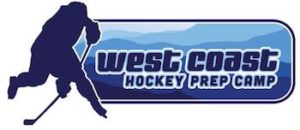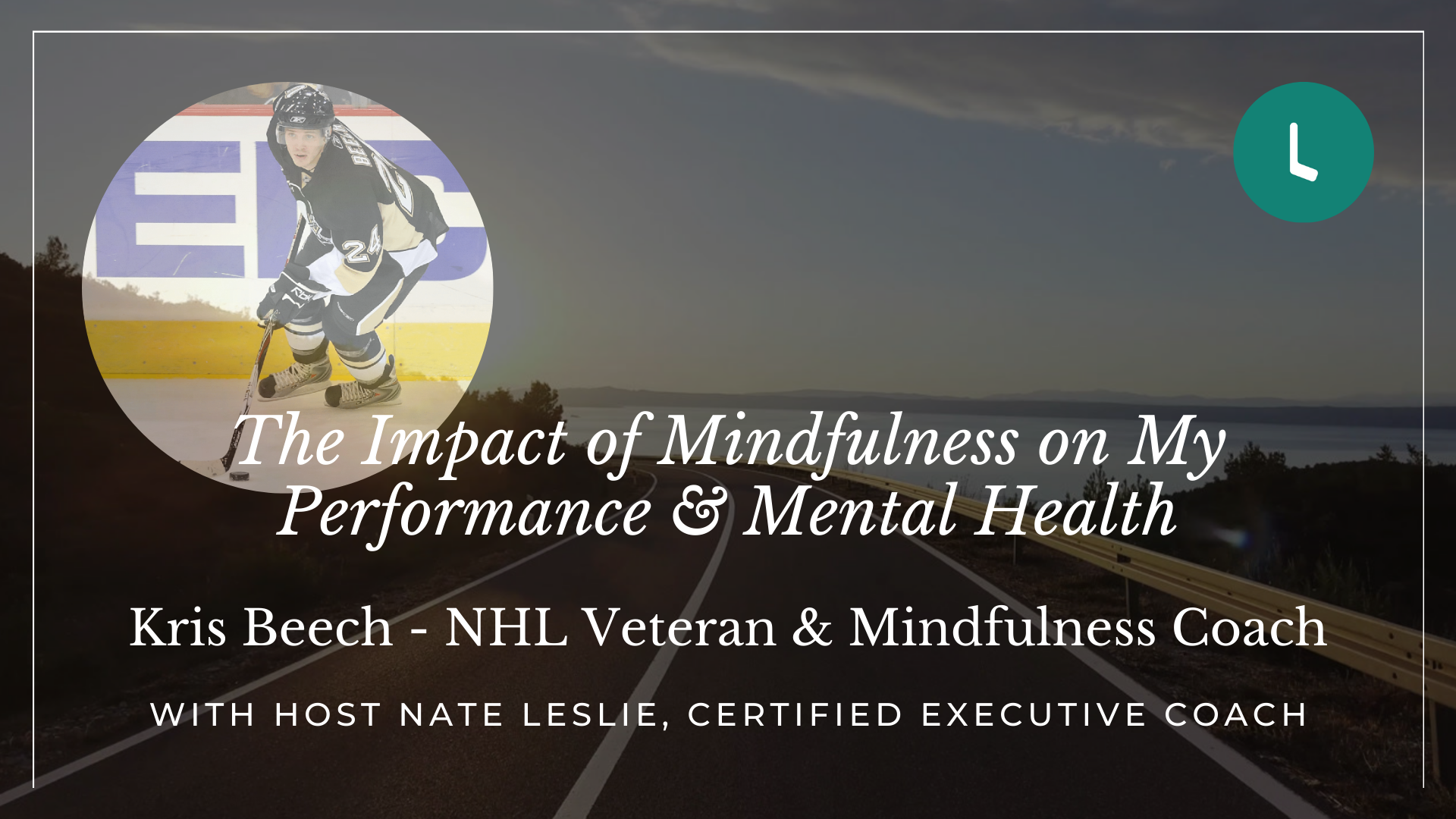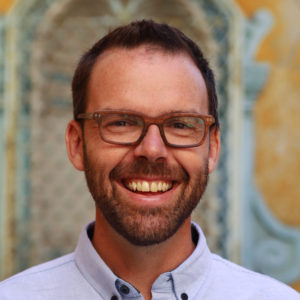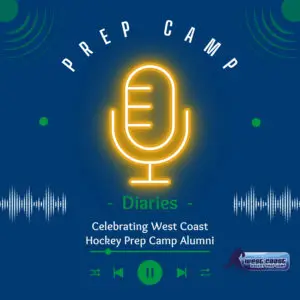Mindfulness Training & Meditation Helped Kris Out of Some Dark Times. Now He's Paying it Forward.
Kris Beech was touted to be a franchise player in the National Hockey League, drafted 7th overall by the Washington Capitals. At 20 years old he was playing alongside Mario Lemieux in Pittsburgh, hoping to live up to the pressure Top 10 Draft Picks face of becoming a Franchise Player. A year later he was sent down and found himself playing in the American Hockey League. Most of us would view Kris’ 7 years in the NHL, 8 years as a pro in Europe, Calder Cup (AHL) championship, Swedish Elite League championship, and WHL championship as an incredible career. However, the highs and lows of his career took a toll on his mental health. His story should remind us all there is more to life than that One Big Goal. Kris credit’s his ability to fall back in love with the game, endure really tough moments, and overcome mental illness with his mindfulness training and meditation practices. His journey will touch the hearts and minds of many athletes and parents.
Mindfulness Training, Career Transitions, Mental Health, & Performance. We Cover a Lot.
Kris and I set out to discuss career transition, his mindfulness training practice, and his new exciting project tying it all together. What we uncovered was much richer and meaningful than I had anticipated. My interview with Kris will inspire athletes young and old, and parents who have ever faced dark days in their own personal and professional journeys.
Kris Beech is a certified mindfulness practitioner, holds a Master’s Degree in Sport Management, coaches hockey at Delta Academy, and is the founder of Aimability. Aimability is an incredible platform connecting performance professionals and services with athletes, organizations, and enterprise.
Contact Aimability and let them know you read this post to get 1 FREE MONTH access to courses and webinars with world renowned performance professionals.
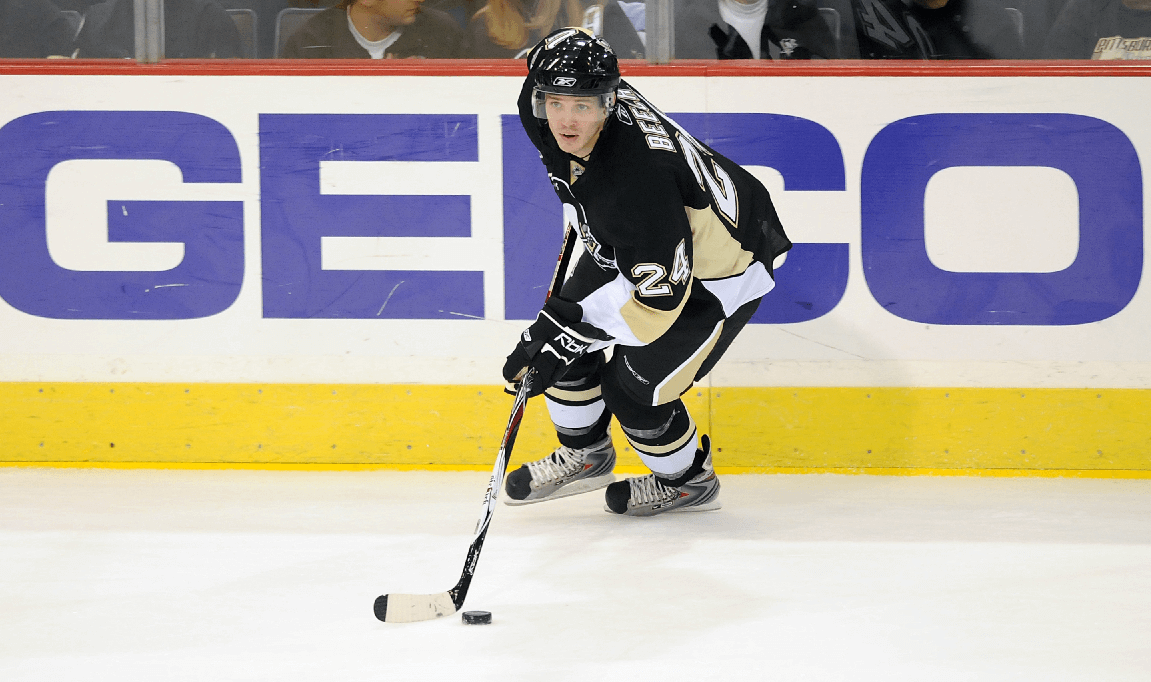
When I witnessed what mindfulness and meditation were doing for my mental health while sick, I started to imagine what it could do for healthy people to improve performance and sense of self.
Kris Beech
Mindfulness Practitioner, NHL Veteran
Interview with Kris Beech & Host Nate Leslie
Mindfulness Exploration
The following text is the transcription of my conversation with Kris from the 9 minute to 15 minute mark of the video.
Athlete transition was not something I knew much about and didn’t fully grasp it at the time until I started to look into other interests. I hadn’t thought much about it until later in my career. In my mid 30’s at the end of my career, I started to learn more about athlete transition. Fortunately I learned that I had been taking a number of the right steps. I started to get inspired to dig into other interests through my exploration of mindfulness. I had put a lot of time into the practice of mindfulness as a player. It helped me in a lot of ways: in my performance, and in my time away from the rink. It inspired me to look into training in a more professional way that people could count on as a legitimate resource. That led me down the path of becoming certified as a mindfulness practitioner. I started to realize I was at the end of my career. Beyond the age of 30-35 the paychecks get smaller and the jobs are harder to comeby. I saw the end coming and started to think a lot more about what I would do after my career was done. I got certified to teach meditation and mindfulness in 2015 from one of the first companies to do it well. Now there are a number of companies out there that are really good.
Inspired to Study
Through that mindfulness exploration I really got inspired to study, and learn other things. As a player over the years I didn’t look into other interests. I was all hockey, despite advice from my parents and other people around me. Having something to occupy my mind other than hockey would have been really good. Once I started investing time in other things I really enjoyed it. That led me to study and earn a Master of Science Degree in Sport Management while playing in Belfast, Northern Ireland. I really enjoyed getting to study at that level of academia, and playing at the same time. It was a challenge as I had not written academic papers to that point. There were a lot of ‘holy shit’ moments but I learned from it. I learned to prepare to present in front of a group. It was very technical. It really helped me connect the dots of my real world experience to the research I did in sport management. It has helped in all aspects of my life. One of the areas of study was athlete transition. It turned out I was taking a lot of the right steps towards the end of my career. Athletes should expect that it can take about 2 years of dedicated attention to develop their new identity. It was right at about that time, 2 years later, that I really started to develop as a business owner, an entrepreneur, and as a mindfulness coach. I continue to learn more and more about this life after hockey as I go.
The Impact of Mindfulness on my Life, Mental Health, and Performance
10 years into my career I looked into mindfulness training. It was out of necessity. I’ve had many ups and downs in my career. Soft skills were lacking from my game. It made for a really tough ride through success and what I would see as failures. I had a lot of high expectations. As a first round top 10 draft pick, 7th overall, you are slated as a potential franchise player. From a young age I was compared to star after star. In my first year in the NHL in Pittsburgh I was playing alongside Mario Lemieux. I had a great year. The next year I got sent down to the minors. That was completely off my radar and really affected who I was as a person. That really challenged my identity as a player who was going to be a star. It affected what I viewed as success for the rest of my career. I was always trying to get to that level. Anything less was seen as failure. I was diagnosed with Major Depressive Disorder at 26. I still got called up that year and played some of the best hockey of my career in Columbus. But it was challenging to say the least. I managed that for another 4 years. It turned out to be an incorrect diagnosis. In Sweden I learned it was Bipolar Disorder. It took me many years to accept that. There were a lot of challenges.
The Power of Science & An Athlete’s Mindset
As a professional athlete I was privileged to have access to some of the best care. It was very helpful but not quite enough. At that point I had lost all self confidence and enjoyment of the game. I was a pro and could still contribute but it was tough. So I chose to make some changes and find the love of the game again. I started to investigate mindfulness. At the time my mother was researching neuroplasticity, how the brain is malleable, and the ability of our brain to make changes. My father was a physician so helped me investigate it more. I started to read more and learn that yes, I have some things going on up there (in my brain), but that I can make changes. That took me to meditation and mindfulness as a way to facilitate neuroplastic changes in the brain. In 2010 some great research came out with strong correlations between neuroplasticity of the brain and mindfulness. I am a man of science so that really hooked me.
Game Changing Moment
I sat down in meditative practice one day. It was one of the first times in many years I had some silence and breaks in the negative thought patterns that had been swirling around in my head constantly. Knowing what I had learned about neuroplasticity and understanding my ability as an athlete to commit to practice and repetition. I understood right away that it was something I could rep out and make positive changes. And it did. It helped my performance, helped me uncover my ability and skill again, helped with my well being away from the rink, helped me make more positive life choices that would improve my health. It had a huge impact on my life and inspired me to look into how to share it with other people as a profession.
Check out our program overview here.
